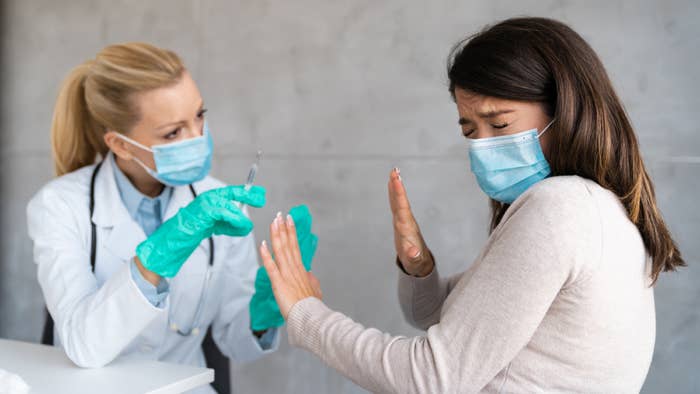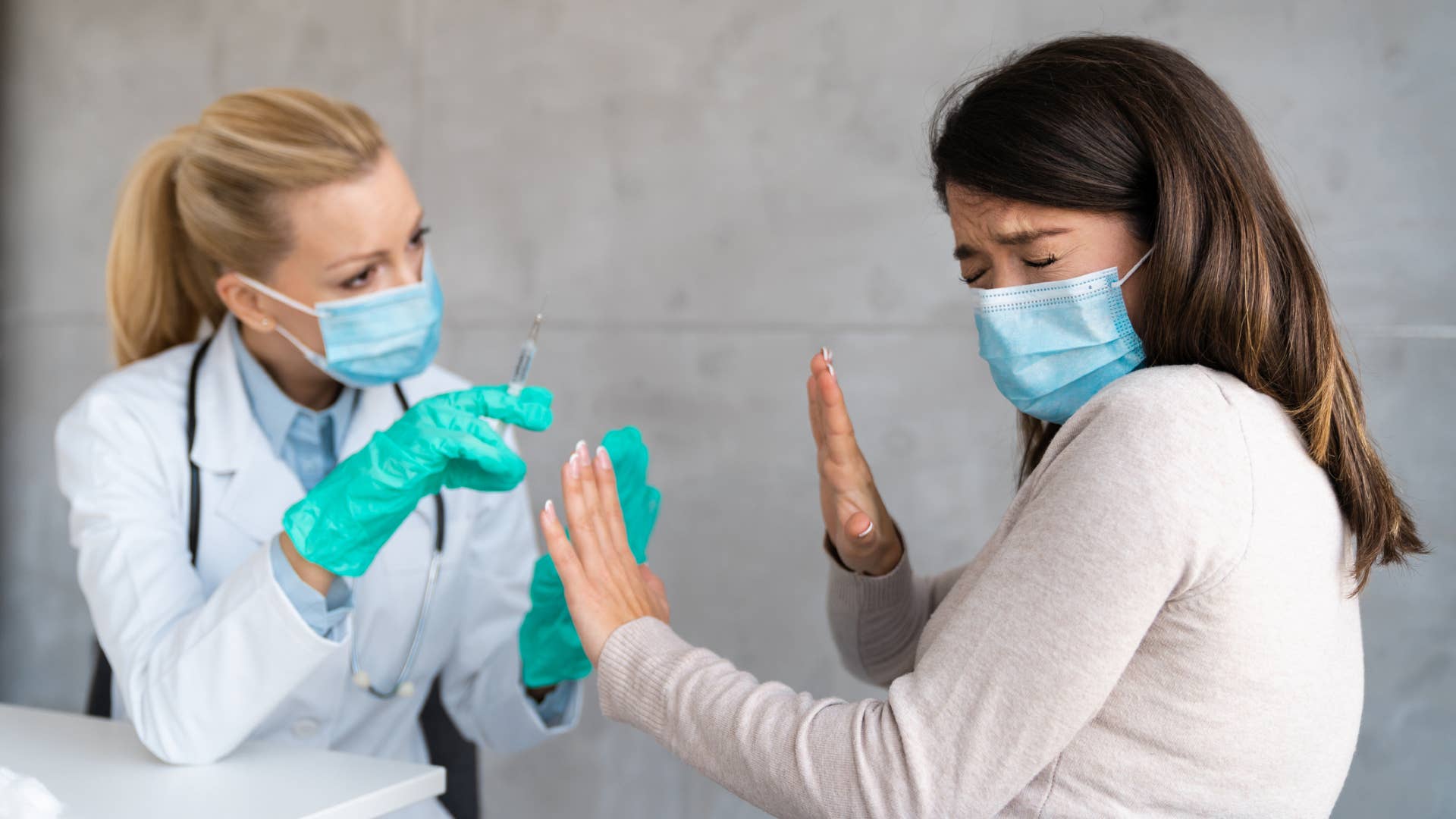
A new study suggests that unvaccinated people aren’t just putting themselves at risk, but are also threatening the safety of those who are vaccinated against COVID-19.
The study, which was published on April 25, called on infectious disease modeling based off the province of Ontario to replicate interactions among vaxxed and un-vaxxed people in a mostly vaccinated population. The findings suggest that attack rates in vaccinated people were higher when they were mixed in with un-vaxxed people.
“We’ve really tended to forget that we’re in a pandemic of a communicable disease, which means that our actions affect those around us,” Dr. David Fisman, study coauthor and epidemiology professor at the University of Toronto’s Dalla Lana School of Public Health said to Global News.
Attack rates were also much lower among vaccinated people who didn’t interact with the unvaccinated. The research stated “Humans do not mix randomly. (They) exhibit a tendency to interact preferentially with others like themselves, a phenomenon referred to as ‘assortativity.’” This correlates to another recent study that suggests 40 percent of Canadians have minimized or cut off contact with friends and family who disagree with them about the pandemic and vaccines.
Unvaccinated people were least susceptible to attacks when they were mixed in with a vaccinated population. The study’s findings were consistent even when looking at modelling for lower vaccine effectiveness, such as the introduction of a new variant or looking at people who haven’t received a booster.
“The decision to get vaccinated can’t be framed as just a matter of personal choice because it has implications for the safety of other people in the community,” said Fisman.
Read the whole study conducted by the Canadian Medical Association Journal here.

